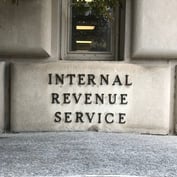Two lawyers at the Congressional Research Service have mixed feelings about the legal basis for Obama administration efforts to overcome public exchange enrollment system problems.
The Patient Protection and Affordable Care Act might not necessarily give the administration authority to offer retroactive access to health insurance subsidy tax credits to exchange glitch victims, according to Edward Liu and Erika Lunder, the CRS lawyers.
But it also isn’t clear who would have standing to challenge the administration’s interpretation in court, because it’s not clear whether anyone would be injured by the administration offering retroactive access to the tax credits, Liu and Lunder write.
A court also might decide to respect the efforts of the Internal Revenue Service and its parent, the U.S. Treasury Department, to implement PPACA, the lawyers write.
The Supreme Court has written that Congress cannot be expected to anticipate every conceivable problem that might arise from implementing a law, the lawyers write.
The level of deference a court might provide might depend on what kind of document the IRS and the Treasury Department use to help the glitch victims, the lawyers add.
“If Treasury/IRS were to issue a regulation subject to notice and comment rulemaking, a court might afford it the highest level of deference,” the lawyers write.
A court might be less deferential if the IRS simply issues informal guidance, the lawyers write.








 April 11, 2014 at 07:17 AM
April 11, 2014 at 07:17 AM










